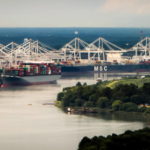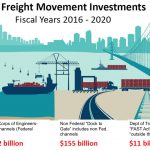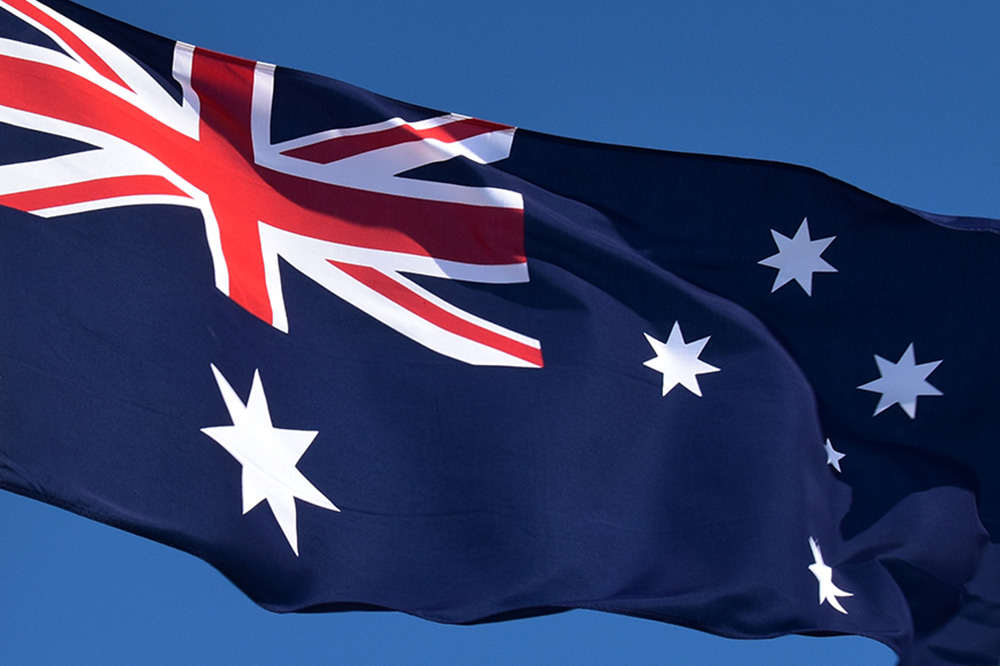By the time that HANSA’s August issue reaches its readers, the two major U.S. political parties will have nominated their candidates for the November election. Barry Parker looks at possible impacts of the election on the maritime industry
The Republicans have nominated Donald Trump while the Democrats will be nominating Hillary Clinton. 2016’s candidates are both historic[ds_preview] – with Mr. Trump, a real estate mogul better known for his television shows, being a complete political outsider, and Mrs. Clinton, a one time First Lady, Senator, and Secretary of State, being the consummate political insider. It’s anybody’s guess who might emerge victorious, but we can draw inferences on the impacts of a win by either the Democrats or the Republicans.
Maritime impacts crisscross a matrix that includes the U.S. fleet, trade flows and domestic infrastructure. In the second half of the previous century, the U.S. owned fleet waned drastically; at this point, the Maritime Administration MARAD, an arm of the U.S. Department of Transportation with a political appointee at its helm, plays a role and runs a number of programs for further development of a U.S. maritime presence. MARAD initiatives include Cargo Preference where certain cargoes, such as military materials or foreign aid, move on U.S. flagged vessels, Maritime Security Program, created during the years of President Bill Clinton, where a fleet of subsidized U.S. flagged ships provide emergency readiness capabilities, and the Title XI Program where the Federal government guarantees the debt finance on U.S. built vessels.
Denise Krepp, who was Chief Counsel at MARAD during the first term of the Obama administration, framed the larger political landscape, expressing concerns about the status of U.S. Cargo Preference programs if Mrs. Clinton wins. Ms. Krepp told HANSA: »Mrs. Clinton was against Cargo Preference Programs when she was Secretary of State.«
The Jones Act, where U.S. flagged/crewed/owned vessels with coastwise trading privileges must also be built in U.S. yards, enforced by U.S. Customs and Border Protection working closely with MARAD, is a continued source of controversy. Traditionally, the arguments have swirled around Maritime readiness and support for U.S yards (the »pro« position) versus the high cost of vessels built and flagged in the U.S. (the »con« position), recently enflamed by Puerto Rico’s financial difficulties. Since the Obama administration has supported the Jones Act, it is likely Mrs. Clinton would also. Washington lore hints that Bill Clinton wrote a pro-Jones Act paper while still in law school. Ms. Krepp suggested: »Donald Trump would likely be anti-Jones Act; he does not understand the relationship between maritime industry and national security.«
Jones Act proponents have likely figured this out; a recent paper by the think tank Republican-leaning Lexington Institute points to benefits of security, particularly on the U.S. inland waterway system, from employing U.S. mariners. A recent study by VesselsValue, a London-based data provider, put the value of the ocean-going Jones Act fleet at 4.6 bn $; the inland portion, the thrust of the Lexington Institute’s recent paper, could be worth the same, or more.
Another key set of maritime issues revolve around funding for the national infrastructure. The very influential American Association of Port Authorities (AAPA) told HANSA, »AAPA is pleased to note that both presumptive nominees have said freight-handling infrastructure, including at ports, need greater investment.« The association, which speaks for the port industry and is in touch with both Democrats and Republicans, said further: »AAPA looks for the US Federal government to uphold its part of the partnership for navigation channel maintenance and deepening, as well as intermodal connectors. The Federal investments are needed to enable the port investments to be realized.«
Mr. Trump has stressed the importance of infrastructure, portraying himself as a builder (being from the properties business), while Mrs. Clinton has advocated the formation of an Infrastructure Development Bank.
In evaluating maritime policy, it is important to look beyond the Presidential contests at the top of the ballots. Denise Krepp, the former MARAD official, explained that the Presidential race, and certain »down ballot« contests could have profound impacts on the leadership of the key legislative committees which pull on the levers of maritime policy. For example, Ms. Krepp suggests that if Mrs. Clinton wins, then Cory Booker (the highest ranking Democratic member of the Merchant Marine subcommittee in the U.S. Senate) might be nominated for a Cabinet position. Ms. Krepp ponders the question of whom the replacement for Mr. Booker’s might be in such a situation. She says that »backfill« issues (Washington parlance for matters of replacing leaders on committees) would be less of concern if Mr. Trump were to win; »He would likely pull in a Cabinet from outside the government.«
Another set of Washington insiders, at the AAPA, also offered a perspective on non Presidential election results, telling HANSA: »We’ve been closely watching races where successors will be chosen for retiring Senators David Vitter (Republican – Louisiana), Barbara Boxer (Democrat – California) and Barbara Mikulski’s (Democrat – Maryland). All three have been strong supporters of the U.S. Army Corps of Engineers navigation program.« Ms. Krepp also mentions the Seapower Subcommittee of the U.S. House of Representatives Armed Services Committee, where its present leader, Congressman Randy Forbes (Republican – Virginia) has lost his bid for re-election. She offered the possibility that pro-maritime Congressman Duncan Hunter (Republican – California) might move over to the Seapower Subcommittee; »This would strengthen support for Cargo Preference and Food Aid – which move on U.S. flagged vessels.«
Trade issues, which would have longer term impacts on cargo flows, also loom in the background. The 2016 environment, from both sides of the U.S. political aisle, was described as »Tough on Trade« by noted economist Mickey Levy, now with Berenberg Bank, speaking at the 2016 Marine Money conference in New York. Dr. Levy said that populist sentiment, fueled by those who had been harmed by competition (including unemployment or no growth in wages), »… had caused a back-tracking on efforts to lower trade barriers and enact global agreements …« He added that: »Both Presidential candidates are stridently anti-free trade. Clinton and Trump take different approaches, but propose initiatives that would erect barriers and increase costs of international trade.« Even though the North American Free Trade Agreement (NAFTA) was implemented by Bill Clinton, Mrs. Clinton has pushed back. A briefing on her campaign website says: »She will oppose trade agreements, like the Trans-Pacific Partnership, that do not meet her high standards for creating good jobs, raising wages, and enhancing our national security.«




















